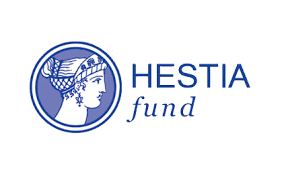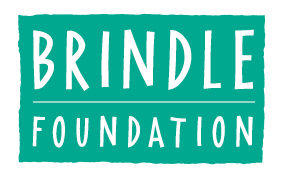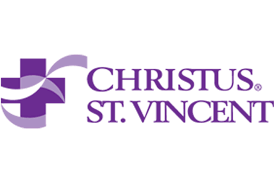Nuestra Jornada (Our Journey)
Nuestra Jornada is Gerard’s House’s largest program, having served over 200 kids during the 2023 year through weekly ongoing grief support groups in the schools. These are all students and youth who are grieving the death of—or separation from—a parent, sibling or other loved one because of immigration status, deportation, incarceration or because a person they love was kidnapped by the cartels or has disappeared.
Many Nuestra Jornada participants have themselves survived violence, threats on their lives and other traumatic experiences. Some have been held in detention centers. And for the most part, these children and teenagers have not had the opportunity to share their stories of suffering and loss before coming to a Nuestra Jornada group. There are many reasons for this. One is that when a family has left a war-torn or violent region, adults understandably find it hard to discuss these painful topics with their children. In their Nuestra Jornada groups, kids can remember the people they are missing and talk about the things that have happened.
Angel is one of the 344 participants we served during the 2016-2017 school year. Now a 14-year-old middle school student, he has been in Nuestra Jornada grief support group for two years. Four years ago, Angel’s mother and siblings came to the border U.S / Mexico border seeking asylum. They were detained and held in a U.S. detention center before being released. The conditions there were very grim. Angel volunteered to share how his grief support group has helped him:
“The Nuestra Jornada group] helped me feel better. It helped me be able to talk and express myself. Before the group everything got me mad. You know when a school is on lockdown? That’s how my brain felt, like it was on lockdown. Now that has changed. I can express myself. It’s not stuck inside of me anymore.”
A common theme that emerges for Nuestra Jornada participants is that they had been in pain for so long that they had gotten used to being in pain without really knowing what it was, where it came from or how to feel better. In these cases, pain had become a hidden and enervating constant, so ubiquitous as to be all but untraceable. Upon attending their first grief support group session, most Nuestra Jornada participants were not even thinking about healing. Feeling better was not an articulated goal. This was not because they didn’t want to feel better. It was because feeling better did not yet seem possible.
For almost every child or teenager who walks into a Nuestra Jornada group, the first step in the healing journey is acknowledging the magnitude of the deaths, separations and other losses they have experienced. Often this step goes hand-in-hand with acknowledging their exposure to violent or life-threatening circumstances. With great compassion and insight, facilitators help participants outline how tragic events have impacted their lives and their very beings. Of course, in most cases, youth participants already mentally know that these events occurred. It is the space created for witnessing and validating how the child experienced (and continues to experience) the event that has the enormous emotional potency.
While many parents and adult caregivers fear that such an acknowledgment might amplify the pain and impair the child’s ability to function, the truth that bears out in Nuestra Jornada groups is that once this pain is acknowledged and witnessed, it can come into the light and there find connection, comfort and expression—and even relief. The beauty of this program is that it is founded on peer support, where trust is built between group members while also being built with adult facilitators who, though empathetic, are not put off by the presence of pain or suffering. Therefore, when the grief emerges, it comes into an atmosphere of acceptance, safety, nurturing and love.
Remarkably, by the end of an 8-week set of weekly groups, almost all participants feel that healing is possible. They believe that feeling better is possible. They know it is, because they have already begun to experience it. And they are not alone. If they have not yet begun to experience relief from suffering, or, if they have just started to heal but need more support, they are invited to continue in the program. As children and teenagers undergo this shift from carrying pain to healing pain, their healing touches everyone around them: friends, classmates, siblings, parents and other family members. They are leading the way in bringing a new outcome into their families and communities.
Bilingual Advisory Committee and Design of the Program: To help us better understand how to serve children and teenagers whose families have come from Mexico and Central America, in 2014 Gerard’s House collaborated with Chris Sanchez of the City of Santa Fe Children and Youth Commission to create a community Bilingual Advisory Committee made up of colleagues and community leaders who work with and advocate for Spanish-speaking immigrant families every day. With this Committee’s help and guidance throughout 2015, Nuestra Jornada has become a remarkably accessible program, with barriers to participation all but erased. By providing Spanish-language groups in the schools in the way the Committee designed and recommended, we are breaking down 3 important barriers to service delivery. The first is language. The second is ease of access. The third is trust. The Committee of passionate community colleagues not only helped us design the program in ways that make it easy for youth to participate, but also has been integrally involved in every step of its implementation. For this, we especially thank the City of Santa Fe Children and Youth Commission, Santa Fe Public Schools, Communities in Schools of New Mexico, Solace Crisis Treatment Center, the City of Santa Fe Immigration Task Force and the Santa Fe Dreamers Project. With the support of funding partners A Little Hope Foundation and the CHRISTUS Fund, the Committee, and many collaborative partners, we served 39 children and teenagers in the pilot phase, from October to December 2015.
Nuestra Jornada Contributors




